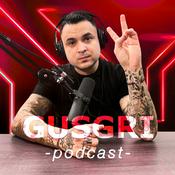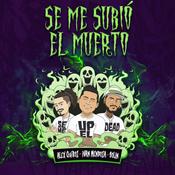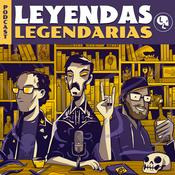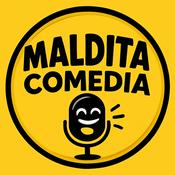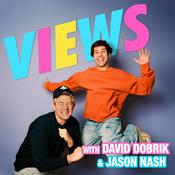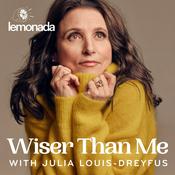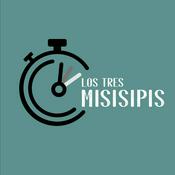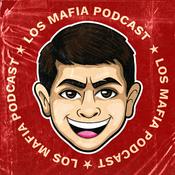22 episodios

No recomiendo ser delulu
04/12/2025 | 18 min
Deja un comentario, dale 5 estrellas al podcast y compártelo con la persona con la que vibres más alto.Suscríbete gratis a mi newsletter “Escríbeme pronto”.Escucha este podcast en Spotify, Apple Podcasts y YouTube.Puedes ponerte en contacto conmigo por Instagram.Bibliografía usada:Berrío Chavarría, [Nombre], y [Nombre] Betancur Hincapié. “Relación entre positividad tóxica y salud mental.” 2024.Dawson, Chris. “Looking on the (B)right Side of Life: Cognitive Ability and Miscalibrated Financial Expectations.” Personality and Social Psychology Bulletin, vol. 51, no. 1, 2025, pp. 49-65, https://doi.org/10.1177/01461672231209400.Dixon, Lucas J., Matthew J. Hornsey, y Nicole Hartley. “’The Secret’ to Success? The Psychology of Belief in Manifestation.” Personality and Social Psychology Bulletin, vol. 51, no. 1, 2025, pp. 49-65, https://doi.org/10.1177/01461672231181162.Ehrenreich, Barbara. Bright-Sided: How the Relentless Promotion of Positive Thinking Has Undermined America. Holt/Metropolitan, 2009.“Estudios sobre impacto de redes sociales en depresión y ansiedad.” Múltiples universidades, 2024.Facebook Internal Research. “Impacto de Instagram en imagen corporal adolescente.” [Año no especificado].Fernández, Vanesa. Doctora en Psicología. Universidad Complutense de Madrid, 2024.Ferrari, Enrique. “Análisis del fenómeno delulu.” Universidad Internacional de La Rioja, 2024.Han, Byung-Chul. La sociedad del cansancio. Traducción de Arantzazu Saratxaga Arregi, 4ª ed. especial, Editorial Herder, 2024.New York University. “Investigación sobre exceso de optimismo y rendimiento.” [Año no especificado].Oettingen, Gabriele. “Future Thought and Behaviour Change.” European Review of Social Psychology, vol. 23, 2012, pp. 1-63, https://doi.org/10.1080/10463283.2011.643698.---. “Pleasure Now, Pain Later: Positive Fantasies About the Future Predict Symptoms of Depression.” Con Doris Mayer y Sam Portnow. Psychological Science, vol. 27, no. 3, 2016, pp. 345-353, https://doi.org/10.1177/0956797615620783.Pew Research Center. “Uso de redes sociales en jóvenes.” 2024.Psyciencia. “La ley de atracción bajo la lupa de la psicología y la neurociencia.” Psyciencia, 2025.The Conversation. “Desmontando la eficacia del fenómeno viral ‘delulu’.” The Conversation, 2025.TikTok. “#delulu.” TikTok, accedido [fecha]. 5,000 millones de visualizaciones.Universidad de Bath. “Estudio con 36,000 participantes sobre optimismo y capacidad cognitiva.” 2023.Universidad del sudoeste colombiano. “Impacto de redes en salud mental.” Estudio con 591 estudiantes, 2024. This is a public episode. If you would like to discuss this with other subscribers or get access to bonus episodes, visit geeknifer.substack.com

No recomiendo leer comentarios en redes
20/11/2025 | 27 min
Deja un comentario, dale 5 estrellas al podcast y compártelo con la persona con la que te mandas reels o videos del tokitoki.Suscríbete gratis a mi newsletter “Escríbeme pronto”.Escucha este podcast en Spotify, Apple Podcasts y YouTube.Puedes ponerte en contacto conmigo por Instagram.Bibliografía usada:* Rozin, Paul, and Edward B. Royzman. “Negativity Bias, Negativity Dominance, and Contagion.” Personality and Social Psychology Review, vol. 5, no. 4, 2001, pp. 296-320.* Lee, Helen Y., and David S. Yeager. “Getting Fewer ‘Likes’ Than Others on Social Media Elicits Emotional Distress Among Victimized Adolescents.” Child Development, vol. 92, no. 3, 2021, pp. 1117-1133.* Cheng, Justin, et al. “Anyone Can Become a Troll: Causes of Trolling Behavior in Online Discussions.” CSCW ‘17: Proceedings of the 2017 ACM Conference, 2017.* Suler, John. “The Online Disinhibition Effect.” Cyberpsychology & Behavior, vol. 7, no. 3, 2004, pp. 321-326.* He, Qinghua, et al. “Excess Social Media Use in Normal Populations Is Associated with Amygdala-Striatal but Not with Prefrontal Morphology.” Psychiatry Research: Neuroimaging, vol. 269, 2017, pp. 31-35.* Robles, Hannah, and Jessica R. Thornton. “Social Media under the Skin: Facebook Use after Acute Stress Impairs Cortisol Recovery.” Frontiers in Psychology, vol. 8, 2017, article 1609.* Maza, Maria T., et al. “Association of Habitual Checking Behaviors on Social Media With Longitudinal Functional Brain Development.” JAMA Pediatrics, vol. 177, no. 2, 2023, pp. 160-167.* Braghieri, Luca, Ro’ee Levy, and Alexey Makarin. “Social Media and Mental Health.” American Economic Review, vol. 112, no. 11, 2022, pp. 3660-3693.* Huszár, Ferenc, et al. “Engagement, User Satisfaction, and the Amplification of Divisive Content on Social Media.” PNAS Nexus, vol. 4, no. 3, 2024.* Matamoros-Fernández, Ariadna. “Angry by Design: Toxic Communication and Technical Architectures.” Humanities and Social Sciences Communications, vol. 7, 2020.* Lanier, Jaron. Ten Arguments for Deleting Your Social Media Accounts Right Now. Henry Holt and Company, 2018.* Han, Byung-Chul. Psychopolitics: Neoliberalism and New Technologies of Power. Verso, 2017.* Habermas, Jürgen. “Reflections and Hypotheses on a Further Structural Transformation of the Political Public Sphere.” Theory, Culture & Society, vol. 39, no. 4, 2022, pp. 145-171.* Zuboff, Shoshana. The Age of Surveillance Capitalism. PublicAffairs, 2019.* Hunt, Melissa G., et al. “No More FOMO: Limiting Social Media Decreases Loneliness and Depression.” Journal of Social and Clinical Psychology, vol. 37, no. 10, 2018, pp. 751-768. This is a public episode. If you would like to discuss this with other subscribers or get access to bonus episodes, visit geeknifer.substack.com

No recomiendo el sedentarismo
27/10/2025 | 35 min
Mueve los dedos: dale 5 estrellas al podcast y compártelo con la persona con la que quieres hacer ejercicio.Suscríbete gratis a mi newsletter “Escríbeme pronto”.Escucha este podcast en Spotify, Apple Podcasts y YouTube.Puedes ponerte en contacto conmigo por Instagram.Bibliografía usada:Bacon, Linda, y Lucy Aphramor. “Weight Science: Evaluating the Evidence for a Paradigm Shift.” Nutrition Journal, vol. 10, no. 9, 2011, pp. 1-13.Böhme, Gernot. Crítica de la economía estética. Traducido por Wolfgang Funk, Modus Tollens, 2017.Bordo, Susan. Unbearable Weight: Feminism, Western Culture, and the Body. University of California Press, 1993.Centers for Disease Control and Prevention. “Adult Obesity Facts.” CDC, agosto 2023, www.cdc.gov/obesity/data/adult.html. Consultado el 23 de octubre de 2025.---. “Economic Impact of Obesity.” CDC, 2019, www.cdc.gov/obesity/health-equity/economic-costs.html. Consultado el 23 de octubre de 2025.Foucault, Michel. Vigilar y castigar: nacimiento de la prisión. Traducido por Aurelio Garzón del Camino, Siglo XXI Editores, 1976. [Original: Surveiller et punir: Naissance de la prison, Éditions Gallimard, 1975]Gay, Roxane. Hunger: A Memoir of (My) Body. Harper, 2017.Gerend, Mary A., et al. “Experienced and Internalized Weight Stigma and Mental Health: A National Sample of U.S. Adults.” Frontiers in Psychiatry, vol. 16, 2025.Guthold, Regina, et al. “Worldwide Trends in Insufficient Physical Activity from 2001 to 2016: A Pooled Analysis of 358 Population-Based Surveys with 1·9 Million Participants.” The Lancet Global Health, vol. 6, no. 10, 2018, e1077-e1086.Hamer, Mark, y Emmanuel Stamatakis. “Metabolically Healthy Obesity and Risk of All-Cause and Cardiovascular Disease Mortality.” Journal of Clinical Endocrinology & Metabolism, vol. 97, no. 7, 2012, pp. 2482-2488.Han, Byung-Chul. La sociedad del cansancio. Traducido por Arantzazu Saratxaga Arregi, Herder Editorial, 2012. [Original: Die Müdigkeitsgesellschaft, MSB Matthes & Seitz, 2010]---. Psicopolítica: neoliberalismo y nuevas técnicas de poder. Traducido por Alfredo Bergés, Herder Editorial, 2014. [Original: Psychopolitik: Neoliberalismus und die neuen Machttechniken, S. Fischer Verlag, 2014]Lavie, Carl J., et al. “Healthy Obese versus Unhealthy Lean: The Obesity Paradox.” Nature Reviews Endocrinology, vol. 11, no. 1, 2015, pp. 55-62.Lee, I-Min, et al. “Effect of Physical Inactivity on Major Non-Communicable Diseases Worldwide: An Analysis of Burden of Disease and Life Expectancy.” The Lancet, vol. 380, no. 9838, 2012, pp. 219-229.Manne, Kate. Unshrinking: How to Face Fatphobia. Crown, 2024.Pearl, Rebecca L., y Thomas A. Wadden. “Weight Bias and Stigma: Public Health Implications and Structural Solutions.” Nature Reviews Endocrinology, vol. 18, 2022, pp. 1-11.Penney, Tarra L., et al. “Exercise Motivation Based on Appearance vs. Health Predicts Exercise Behavior, Body Image, and Mental Health: A Meta-Analysis.” Body Image, vol. 22, 2017, pp. 99-108.Rubino, Francesco, et al. “Joint International Consensus Statement for Ending Stigma of Obesity.” Nature Medicine, vol. 26, no. 4, 2020, pp. 485-497.Santos, Isaac, et al. “A Comprehensive Analysis of Prevalence of Physical Inactivity Worldwide: Trends, Gender Differences, and Regional Patterns.” Frontiers in Public Health, vol. 12, 2024.Swift, Damon L., et al. “The Role of Exercise and Physical Activity in Weight Loss and Maintenance.” Progress in Cardiovascular Diseases, vol. 56, no. 4, 2014, pp. 441-447.Tomiyama, A. Janet, et al. “How and Why Weight Stigma Drives the Obesity ‘Epidemic’ and Harms Health.” BMC Medicine, vol. 16, no. 123, 2018.Ulian, Mariana D., et al. “Effects of Health at Every Size Interventions on Health-Related Outcomes of People with Overweight and Obesity: A Systematic Review.” Obesity Reviews, vol. 19, no. 12, 2018, pp. 1659-1666.World Health Organization. “Obesity and Overweight.” WHO Fact Sheet, 2022, www.who.int/news-room/fact-sheets/detail/obesity-and-overweight. Consultado el 23 de octubre de 2025.---. “Physical Activity.” WHO Fact Sheet, 2022, www.who.int/news-room/fact-sheets/detail/physical-activity. Consultado el 23 de octubre de 2025.Zembic, Astrid, et al. “An Empirically Derived Definition of Metabolically Healthy Obesity Based on Risk of Cardiovascular and Total Mortality.” JAMA Network Open, vol. 4, no. 5, 2021, e218505. This is a public episode. If you would like to discuss this with other subscribers or get access to bonus episodes, visit geeknifer.substack.com

No recomiendo la serie de Ed Gein
09/10/2025 | 42 min
No mates este programa. Dale 5 estrellas y compártelo con tu amante favorito del true crime.Suscríbete gratis a mi newsletter “Escríbeme pronto”.Escucha este podcast en Spotify, Apple Podcasts y YouTube.Puedes ponerte en contacto conmigo por Instagram.Bibliografía usada:* Arendt, Hannah. Eichmann in Jerusalem. Viking Press, 1963.* Butler, Judith. Precarious Life. Verso, 2004.* Debord, Guy. The Society of the Spectacle. Zone Books, 1994.* Engelhardt et al. “Neural Desensitization to Violence Predicts Increased Aggression.” Journal of Experimental Social Psychology, 2011.* Haggerty, Kevin. “Modern Serial Killers.” Crime, Media, Culture, 2009.* Han, Byung-Chul. The Transparency Society. Stanford University Press, 2015.* ---. Topology of Violence. MIT Press, 2018.* Lankford & Madfis. “Media Coverage of Mass Killers.” American Behavioral Scientist, 2018.* Mrug et al. “Emotional Desensitization to Violence Contributes to Adolescents’ Violent Behavior.” Journal of Youth and Adolescence, 2015.* Sajous-Turner et al. “Aberrant Gray Matter in Murderers.” Brain Imaging and Behavior, 2019.* Sontag, Susan. Regarding the Pain of Others. Farrar, Straus and Giroux, 2003.* Stockdale et al. “Emotionally Anesthetized: Media Violence Induces Neural Changes During Emotional Face Processing.” Social Cognitive and Affective Neuroscience, 2015.* Surette, Ray. “Copycat Crime and the Media.” Aggression and Violent Behavior, 2015.* Treggiaa, E.V. et al. “Unpacking the Construction of Online Identities of Hybristophilia Communities on TikTok.” Deviant Behavior, 2024.* Vicary, A.M. & Fraley, R.C. “Captured by True Crime: Why Are Women Drawn to Tales of Rape, Murder, and Serial Killers?” Social Psychological and Personality Science, 2010.* Yang et al. “Hypothalamic Neurons That Mirror Aggression.” Cell, 2023. This is a public episode. If you would like to discuss this with other subscribers or get access to bonus episodes, visit geeknifer.substack.com

No recomiendo celebrar tu cumpleaños
25/9/2025 | 28 min
Como es mi cumpleaños, puedes regalarme 5 estrellas y compartir este podcastSuscríbete gratis a mi newsletter “Escríbeme pronto”.Escucha este podcast en Spotify, Apple Podcasts y YouTube.Puedes ponerte en contacto conmigo por Instagram.Bibliografía usada:* Abd Ellatif Elsayed, Heba. “Fear of Missing Out and Its Impact: Exploring Relationships with Social Media Use, Psychological Well-Being, and Academic Performance Among University Students.” Frontiers in Psychology, vol. 16, 2025, doi:10.3389/fpsyg.2025.1582572.* Ajdacic-Gross, Vladeta, et al. “Death on Birthdays: A Study of All-Cause and Cause-Specific Mortality.” Annals of Epidemiology, vol. 22, no. 8, 2012, pp. 603-606, doi:10.1016/j.annepidem.2012.04.016.* Bhugra, Dinesh, and Antonio Ventriglio. “Are Rituals Important for Mental Health?” International Journal of Social Psychiatry, vol. 70, no. 3, 2024, pp. 456-459, doi:10.1177/00207640241232192.* Han, Byung-Chul. The Burnout Society. Stanford University Press, 2015.* Han, Byung-Chul. The Disappearance of Rituals: A Topology of the Present. Polity Press, 2020.* Heidegger, Martin. Sein und Zeit [Being and Time]. Max Niemeyer Verlag, 1927.* Hunt, Melissa G., et al. “No More FOMO: Limiting Social Media Decreases Loneliness and Depression.” Journal of Social and Clinical Psychology, vol. 37, no. 10, 2018, pp. 751-768, doi:10.1521/jscp.2018.37.10.751.* Matsubayashi, Tetsuya, et al. “Higher Risk of Suicide on Milestone Birthdays: Evidence from Japan.” Scientific Reports, vol. 9, no. 1, 2019, doi:10.1038/s41598-019-53203-4.* Nietzsche, Friedrich. Zur Genealogie der Moral [On the Genealogy of Morality]. 1887.* Paschke, Kerstin, et al. “Social Media Use, Mental Health and Sleep: A Systematic Review with Meta-Analyses.” Journal of Affective Disorders, vol. 364, 2024, pp. 587-602, doi:10.1016/j.jad.2024.07.049.* Ricoeur, Paul. Oneself as Another. University of Chicago Press, 1992.* Taylor, Charles. Sources of the Self: The Making of the Modern Identity. Harvard University Press, 1989.* Williams, Adam, et al. “Birthday Blues: Examining the Association Between Birthday and Suicide in a National Sample.” Crisis, vol. 32, no. 3, 2011, pp. 134-142, doi:10.1027/0227-5910/a000067.* Yang, Shiwen, and Dan Ge. “Why Does Aging Anxiety Emerge? A Study on the Influence of Socioeconomic Status.” Frontiers in Psychology, vol. 16, 2025, doi:10.3389/fpsyg.2025.1602284. This is a public episode. If you would like to discuss this with other subscribers or get access to bonus episodes, visit geeknifer.substack.com
Más podcasts de Humor
Podcasts a la moda de Humor
Acerca de No recomiendo
Escucha No recomiendo, Noche De Chicxs y muchos más podcasts de todo el mundo con la aplicación de radio.net
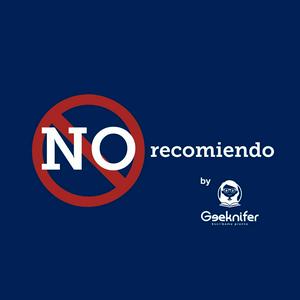
Descarga la app gratuita: radio.net
- Añadir radios y podcasts a favoritos
- Transmisión por Wi-Fi y Bluetooth
- Carplay & Android Auto compatible
- Muchas otras funciones de la app
Descarga la app gratuita: radio.net
- Añadir radios y podcasts a favoritos
- Transmisión por Wi-Fi y Bluetooth
- Carplay & Android Auto compatible
- Muchas otras funciones de la app


No recomiendo
Descarga la app,
Escucha.





